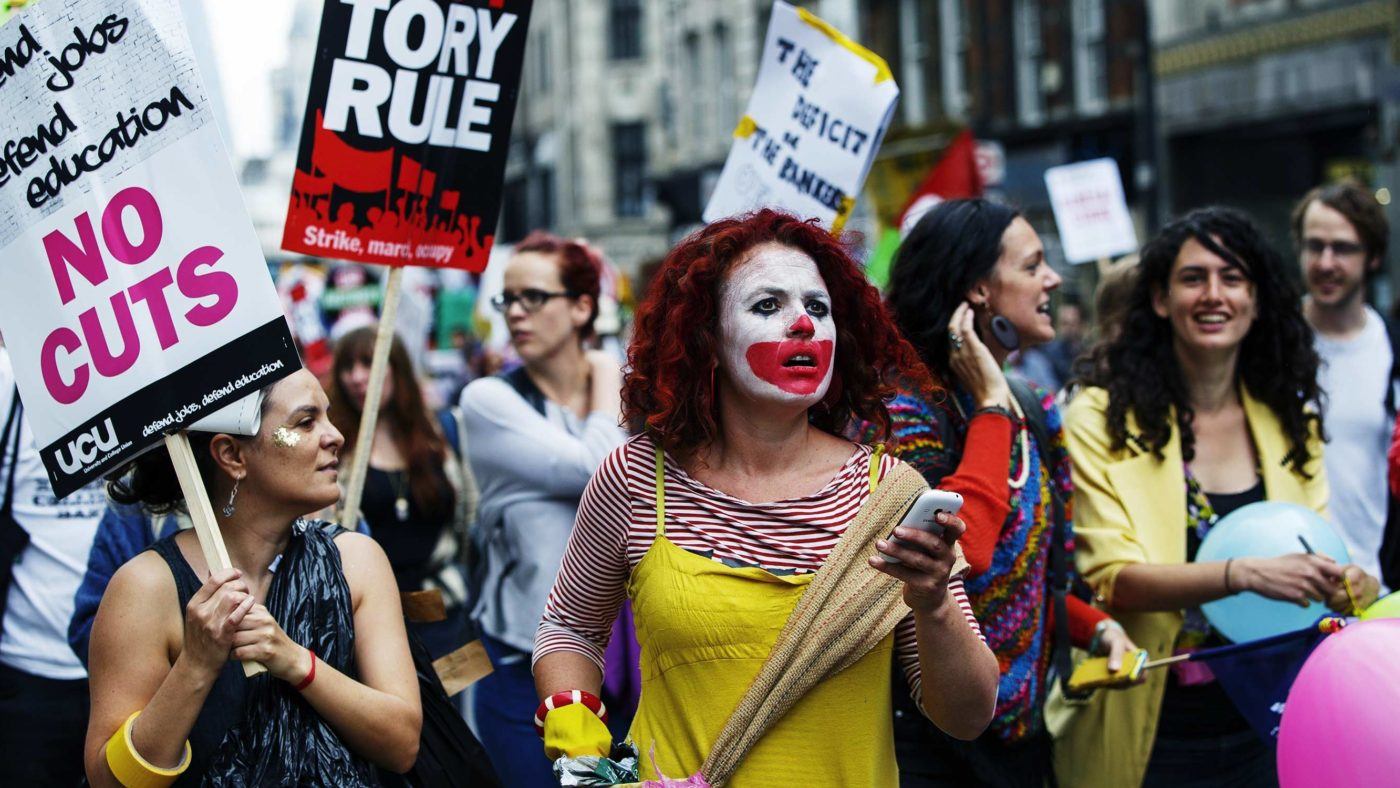For many Remainers, the Brexit vote was not just a political shock, but a psychological one. They woke up on the morning of June 24 in a country they did not recognise.
Among free-marketeers this weekend, there is a similar combination of depression and disbelief. Yes, Theresa May ran an uninspiring campaign. But for Jeremy Corbyn – Jeremy Corbyn! – to attract 40 per cent of the vote? It was simply illogical, unbelievable, inconceivable that the British public could rally behind a candidate so extreme, so inadequate, so profoundly and incessantly wrong.
But that is where we are. Corbyn’s armada of youthful zealots have secured him the largest increase in Labour’s vote share since Clement Attlee. As I lamented yesterday, he is not just in control of the Labour Party, but in command of it.
And what did the Conservatives put up in opposition? Yes, they talked about Corbyn’s IRA links. And his belief in the magic money tree. But in practice, they had already conceded much of their ground. A party offering a Miliband-lite menu of paternalist (maternalist?) intervention – whose manifesto condemned socialism and libertarianism as twin evils – was neither interested in, nor capable of, matching Corbyn blow for ideological blow.
In an election in which people were tired of austerity, alarmed about cuts, worried about the NHS and social care, is it any wonder that they turned to the party that was promising to fix those problems, and more, by throwing money at them? It was cynical and unaffordable, yes. But Labour gave people things to vote for. The Tories only gave them things to vote against.
But still. Just as many Remain voters discovered the existence of Leavers in the wake of Brexit, so Tories have suddenly discovered the existence of an entire cohort who are ignorant of, alienated from or simply contemptuous of the market – for whom the financial crisis was not a blip, but a scar.
In other words, not just the Conservative Party but the wider conservative movement has been reminded once again that battle of ideas is never won, but must always be fought anew – which was, indeed, the very reason why CapX was founded.
So now is the time for some urgent thinking. How can the centre-Right develop policies that deliver genuine mass prosperity? How can it sell ideas of choice and competition – the things that we know actually work – in ways that people will accept? How can those young people who have lent an ear to Corbyn be coaxed into accepting that it is not heartless to care about sound finances, that growth and profit are not a cancer on society but the wellspring from which all else springs – including the money for the public services that they cherish?
Beyond that, they – we – need to think equally carefully about the big problems facing society. The NHS is faltering. Young people need houses. And, of course, the Brexit deal needs to be negotiated, in a way that maximises rather than damages Britain’s prosperity both in the short term and the long.
And in tackling all of these issues, there is a crying need to explain, and explain, and explain again why free-market policies are not heartless, but both compassionate and necessary.
David Cameron and his team of social reformers were actually pretty good at this. But it is something that has been allowed to drain away from the Tory offer, to the point where (for example) praise for the party’s remarkable record of job creation is drowned out by the clamour over those whose benefits have been cut.
I wrote yesterday that Theresa May faces, in political terms, an impossible job. But there is another job which in the wake of yesterday’s results feels equally impossible – yet overwhelmingly necessary. And that is to convince Britain, as Margaret Thatcher once did, of the merits of the market.
This article is taken from the CapX Weekly Briefing. Sign up here.


